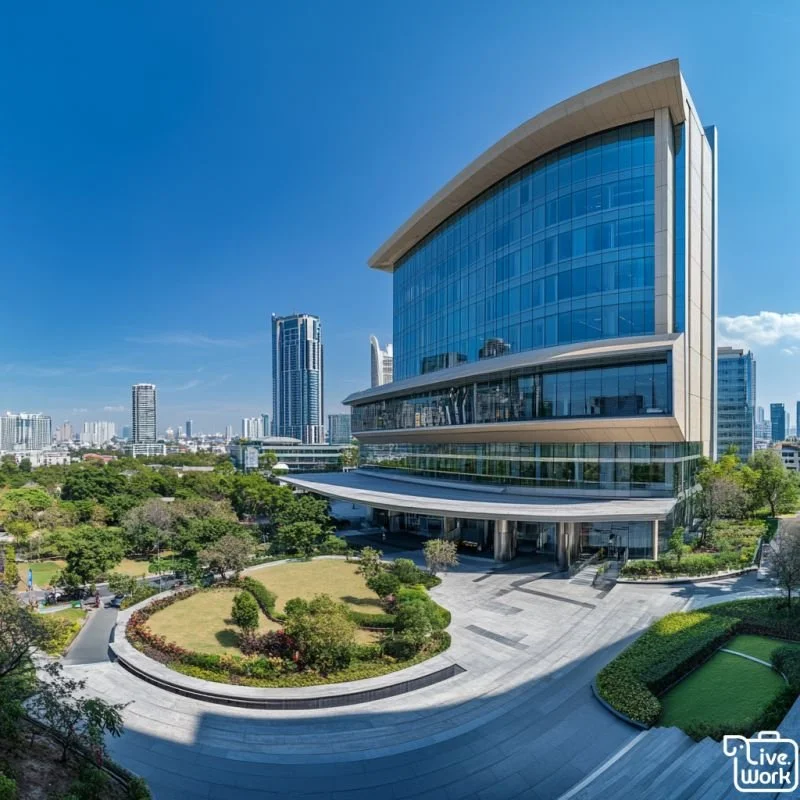Healthcare in Thailand for Expats: Affordable Excellence and Global Standards
When relocating to a new country, access to healthcare is often a top concern. Fortunately for expats living in Thailand, healthcare is not only affordable and accessible—it’s world-class. From state-of-the-art private hospitals in Bangkok to reputable public facilities in regional cities, Thailand offers a well-rounded and reliable medical system that continues to attract residents and medical tourists alike.
Whether you're seeking routine check-ups, specialized treatments, or emergency services, Thailand delivers high standards of care at a fraction of Western prices.
🏥 Public vs. Private Healthcare in Thailand
Thailand’s healthcare system is divided into two main sectors: public and private. Both serve expats, but the experience and pricing differ significantly.
Public Hospitals:
Run by the Thai government and offer subsidized services.
Tend to have longer wait times and limited English-speaking staff.
Often used by expats for routine procedures, vaccinations, or minor ailments.
Not always ideal for time-sensitive or specialized care.
Private Hospitals and Clinics:
Equipped with modern technology, internationally trained staff, and English-speaking personnel.
Offer short wait times, high-end facilities, and personalized service.
Ideal for specialist consultations, surgeries, and emergency care.
Examples include Bumrungrad International Hospital, Bangkok Hospital, and Samitivej Hospital.
Tip: Most expats prefer private facilities due to their convenience and international-standard care.
🩺 Range of Medical Services Available
Thailand’s healthcare system is highly diversified and offers a broad spectrum of services, including:
General practice and specialist consultations
Emergency and urgent care
Surgical procedures (orthopedic, cardiac, cosmetic, etc.)
Dental care and orthodontics
Eye care and LASIK
Wellness clinics, physiotherapy, and rehabilitation
Maternity and pediatric care
Many private hospitals function as “one-stop” health centers, offering diagnostics, lab work, pharmacies, and outpatient procedures under one roof.
🌍 International Standards and Accreditation
Several Thai hospitals are JCI-accredited (Joint Commission International), signifying they meet global standards in patient safety and clinical quality. This makes Thailand not just popular among expats, but a leading hub for medical tourism from countries like Australia, the UK, the U.S., and the Middle East.
Highly skilled doctors—many trained or certified abroad—work in these hospitals, providing reassurance and confidence to foreign patients.
💳 Health Insurance for Expats
While out-of-pocket costs are relatively low in Thailand, having private health insurance is strongly recommended for expats, especially for major procedures or emergencies.
Types of coverage available:
Local Thai insurance (e.g., LUMA, Pacific Cross): Affordable and tailored for residents.
International plans (e.g., Cigna, Allianz, Bupa Global): Suitable for those who travel frequently or want broader coverage.
Employer-provided plans: Often included in relocation or employment packages.
What to look for:
Inpatient vs. outpatient coverage.
Maternity or dental add-ons.
Emergency evacuation or repatriation.
Direct billing agreements with hospitals.
🧾 Cost Comparison: Healthcare in Thailand vs. Western Countries
| Procedure | Average Cost in Thailand | Cost in U.S./U.K. Equivalent |
|---|---|---|
| GP Visit | $20–$40 | $100–$150 |
| MRI Scan | $250–$500 | $1,200–$3,000 |
| Dental Cleaning | $30–$60 | $100–$300 |
| Cataract Surgery | $1,200–$2,000 | $3,000–$5,000+ |
| Childbirth (Private) | $2,000–$4,000 | $10,000–$20,000 |
These lower costs do not compromise quality, making Thailand a smart choice for expats prioritizing both care and cost-efficiency.
💡 Tips for Expats Navigating Thai Healthcare
Keep your passport and insurance card on hand for appointments.
Use hospital apps or websites to make appointments online—many are in English.
Ask for itemized bills and confirm insurance coverage before major procedures.
Join expat forums or Facebook groups to get real-world reviews of hospitals and doctors.
Learn key medical phrases in Thai or bring a friend if visiting local clinics without English support.
❤️ Why Expats Trust Healthcare in Thailand
Efficient service: Appointments are easy to book, and wait times are minimal.
World-class care at lower prices: Especially beneficial for retirees and digital nomads.
Warm, patient-centered culture: Care often comes with kindness, patience, and attentiveness.
Well-integrated insurance systems: Streamlined processes make reimbursements or direct billing easy.
Final Thoughts: Healthcare You Can Count On
Moving to Thailand doesn’t mean compromising on healthcare—it means gaining access to quality care, greater affordability, and peace of mind. Whether you’re managing chronic conditions, planning a medical procedure, or just living life with confidence, Thailand’s healthcare system offers the reliability and comfort every expat deserves.
